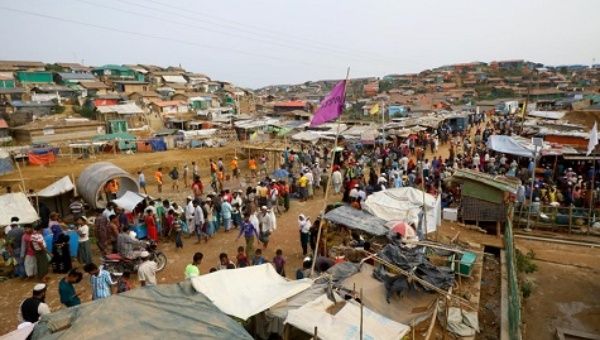As per latest reports, Bangladesh has banned mobile phone access in the Rohingya camps in the country. Bangladesh Telecom Regulatory Commission (BTRC) has reportedly directed all mobile phone operators to stop selling SIM cards to Rohingyas and ensure that mobile phones are not used by them. Posts and Telecommunications Minister, Mustafa Jabbar reportedly asked the Commission to take steps towards stopping the use of mobile phone services at the Rohingya camps in the border district of Cox’s Bazar. The ban on the sale of SIM cards to the Rohingyas was first imposed in 2017.
Bangladesh Telecom Regulatory Commission (BTRC) has also been asked to report within seven days about the measures taken to ban mobile phone access in Rohingya camps. The BRTC has also reiterated its directive issued in October last year when it had asked mobile phone operators to restrict their networks in the bordering areas between Myanmar and Bangladesh and block networks in and around the Rohingya camps. The mobile phone operators had reportedly weakened their networks in the border areas following the BRTC directive.
There were allegations to the effect that the telecom operators were providing SIM cards to the Rohingyas in defiance of the ban on same of SIM cards to the Rohingya refugees. The ban on the sale of SIM cards to Rohingyas had been imposed by the Bangladesh government citing security reasons. The government of Bangladesh had even proposed setting up phone booths in Rohingya camps to meet their communication needs. However, the sale of SIM cards to Rohingya refugees is reported to have continued illegally. As per an Al Jazeera report on this development, a police spokesman, Ikbal Hossain, hailed the decision to ban mobile phone access in Rohingya camps. He said that the refugees had been “abusing” mobile phone access to conduct criminal activities such as trafficking of methamphetamine pills, worth hundreds of millions of dollars from Myanmar. Talking about the decision to ban mobile phone access, he said, “It will make a positive impact. I believe criminal activities will surely come down.” Therefore, the decision to ban mobile phone access in Rohingya camps is based entirely on security considerations.
India too has been affected by security concerns relating to illegal Rohingya immigrants from Bangladesh in the past. Last year, the Centre had communicated to various states the methods which needed to be followed to keep the Rohingyas separated from the Indian population. The communication by the Central Government asked the states to ensure that the Rohingyas were confined in specifically identified locations. According to the letter, the Central Government highlighted the issue of the “security risks posed by some of those Rohingya/foreigners who entered India illegally and were involved in illegal activities such as fraudulent procurement and/or fabrication of Indian identity cards — PAN, voter IDs etc — money laundering, crimes and other anti-national activities”. The other measures included enrolling and recording their particulars, taking the biometrics of every individual immigrant and their address in Myanmar. The Centre had also advised the state governments not to issue Aadhaar or any other documents to the Rohingyas which may lead to them claiming Indian identity in the future.



























